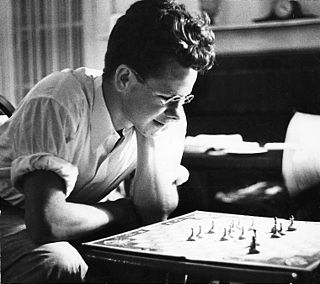A Quote by Neil deGrasse Tyson
It was unthinkable not long ago that a biologist or paleontologist would be at the same conference as an astrophysicist. Now we have accumulated so much data in each of these branches of science as it relates to origins that we have learned that no one discipline can answer questions of origins alone.
Related Quotes
We probably have, right now, after the Civil Rights movement - and this was very unfortunate - the most glaring time of giving up on Africa, saying we're Americans. We are Americans. I'm not arguing that point. So are the Italians. So are the Germans. So are the Jews. We're Americans with an historical geography of origins outside of the United States as all people, maybe except the indigenous Americans who came here so long ago, who have generations of people whose historical origins are right here but whose initial historical origins are somewhere in Asia.
Yes, the natural sciences are telling us a great deal about human origins, the origins of our species the origins of our minds; we're on our way to explaining a large part of it. I'll accept an answer provided only by such means as obtaining and exploring, analyzing and arguing over the evidence - not because of a scribe's myopic view of the subject written 500 years before the birth of Christ!
It is my conviction that if any professional biologist will take adequate time to examine carefully the assumptions upon which the macro-evolution doctrine rests, and the observational and laboratory evidence that bears on the problem of origins, he/she will conclude that there are substantial reasons for doubting the truth of this doctrine. Moreover, I believe that a scientifically sound creationist view of origins is not only possible, but it is to be preferred over the evolutionary one.
When you look at that nature world it becomes an icon, it becomes a holy picture that speaks of the origins of the world. Almost every mythology sees the origins of life coming out of water. And, curiously, that's true. It's amusing that the origin of life out of water is in myths and then again, finally, in science, we find the same thing. It's exactly so.
Each discipline has the capacity to be interested in politics, and each would ask different questions of what politics is, what constitutes power, how power is maintained, how it circulates, how relationships are formed, how institutions are built, how they fall. Every discipline would answer those questions in different ways.
A millennial belief in a Holy God may have the effect of deepening the soul, but it is also obviously archaic, and modern influences would presently bring me up to date and reveal how antiquated my origins were. To turn away from those origins, however, has always seemed to me an utter impossibility. It would be a treason to my first consciousness to un-Jew myself.
But in the end, science does not provide the answers most of us require. Its story of our origins and of our end is, to say the least, unsatisfactory. To the question, "How did it all begin?", science answers, "Probably by an accident." To the question, "How will it all end?", science answers, "Probably by an accident." And to many people, the accidental life is not worth living. Moreover, the science-god has no answer to the question, "Why are we here?" and, to the question, "What moral instructions do you give us?", the science-god maintains silence.


































